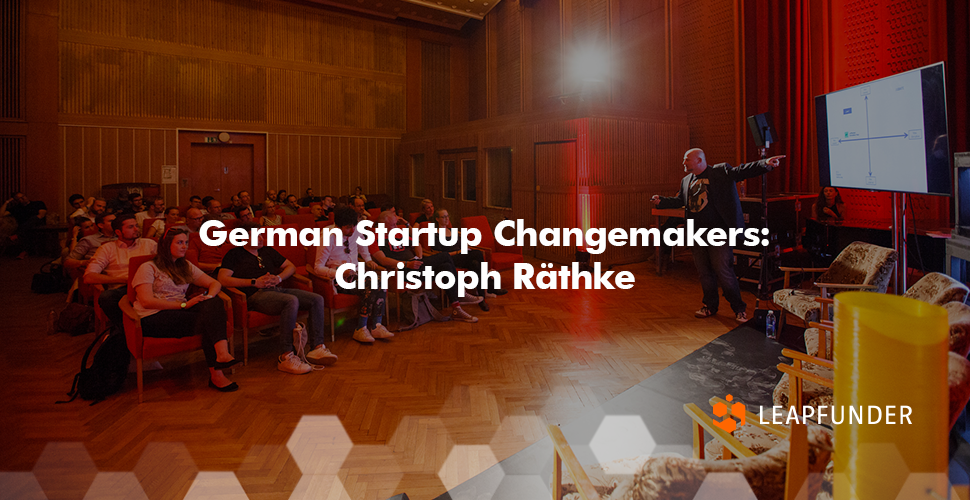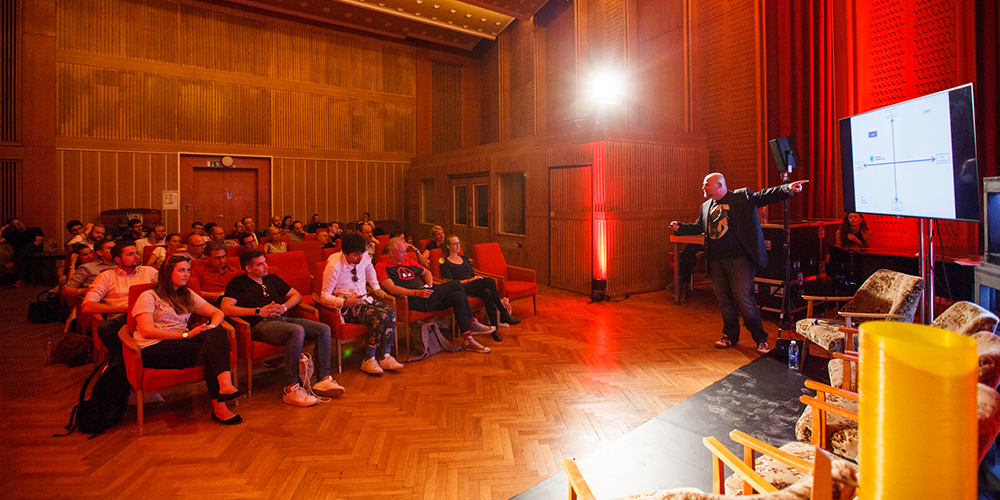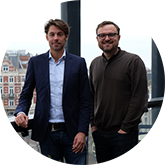It’s been a while since we talked to Christoph Räthke, a startup founder, investor, writer, speaker and mentor. Between ‘19 and ‘20, he was working on Angels of Deutschland, a podcast that follows him as he makes three investments in young, digital companies: 3 x 30,000 euros. The aim was to convey the know-how and passion that everyone who wants to successfully invest in the new technology companies in Germany needs. Find out what he likes and dislikes most in the Berlin startup scene, what are the current trends and what’s crucial for enhancing the ecosystem.
 1. Hi Christoph, thank you for agreeing to do the interview. It’s been a while since our last chat. How have you been? What have you been up to lately?
1. Hi Christoph, thank you for agreeing to do the interview. It’s been a while since our last chat. How have you been? What have you been up to lately?
Between ‘19 and ‘20, I’ve been running a podcast that explains everything regarding becoming an angel, being an angel and working with angels. I’ve done that part in collaboration with Leapfunder, and as part of it, I invested in one of your startups called Movacar. During these 12 months, there were 24 episodes shedding light on every aspect of being an angel. I’ve also released an e-book with accompanying materials, graphs, additional info and examples.
For that, I interviewed a dozen startups who shared their pitches with me. You can still listen to the podcast – it’s intended to be the go-to resource for everyone interested in angel investment. I might want to continue with yearly updates to keep track of what will be changing over time.
2. What do you like most about the way the startup scene is evolving in Berlin and what bugs you the most?
What I like best is the ongoing professionalization of startups and the startup ecosystem in Berlin, dragging the rest of the country after it. This is great – meanwhile, the startup phenomenon is becoming less and less Berlin only. Knowledge and access to resources are becoming more and more available around Germany.
What bugs me, apart from the hardships of the pandemic, is that there is a number of open issues when it comes to startup governance by the German government. For example, an issue that the startup scene tried to resolve in vain was how to let startup employees obtain shares in the companies they work for without being taxed right away. In the US that’s been one of the drivers for startup success forever. Compensation schemes of that sort are really important to keep everyone on board.
Another thing that’s not moving quickly is exit paths for German startups on the stock exchange or through M&A. The German industry is still reluctant to acquire knowledge, new products and best practice through startup M&A. This, too, is something that has been driving the ecosystem in the US tremendously – there’s far too little happening in Germany in that respect.
3. Do starting founders face different challenges these days?
There is a new generation of founders and supporting organizations driven by sustainability goals and value-driven approaches. One new term is the “zebra” that, unlike the “unicorn”, aims to create social impact instead of a billion-dollar company. In my view that’s nonsensical. The separation between founders looking for commercial success, which is deemed morally questionable, and founders following some woke, righteous path by creating companies that don’t scale, aren’t interesting to investors, and largely live off taxpayer’s or donators’ money is what has kept impact startups down for decades. From the outside, “Startup” has become a lifestyle term – its fundamental connection to technology, scalability, and business success seems to be moving out of focus. As a consequence, new founders are facing a challenge not to fall for fanciness but stay true to customer- and data-driven value creation that can grow and become sufficiently lucrative.
4. What are the current trends in Berlin’s startup scene and what’s coming up next?
A lot of entrepreneurs that I work with are looking for solutions to environmental problems. I do think this is the most important and also potentially most lucrative market in the next decades, but only for teams that manage to translate an environmental challenge into an economic opportunity.
I have a few favourite startups that are doing it right. A startup called betteries is dealing with the problem of used electric car batteries. The founder plans to upcycle them into energy grids for emerging economies. There is money in this because both power grid companies and battery producers benefit massively.
There’s also lots going on in plastic recycling. The fight against plastic waste already is a multi-billion industry; anyone who finds good solutions in this field stands to find great business models.
5. What would you like to change in the current ecosystem? What’s crucial for enhancing the ecosystem?
As I mentioned, I would like to see better opportunities for founders and startups to create profitable exits, either through listing on the stock exchange or through better M&A activity. Many German corporations, as successful as they are, are causing large environmental problems. Germany is still the home of the world’s chemical and car-making industry. In the light of carbon-neutrality goals and driven by European legislation, they are looking for solutions to transform their businesses. So why isn’t there more M&A and Corporate VC going into startups working in the field? And on a more fundamental plane: I’m still a huge fan of introducing software development as a school topic so that many more boys and girls have the skills to try out tech. A new generation versed in coding – would take the ecosystem to a whole new level.
Thanks a lot for sharing your insights, Christoph. We wish you the best of luck in your future endeavours.
Join our network of startups & investors!


